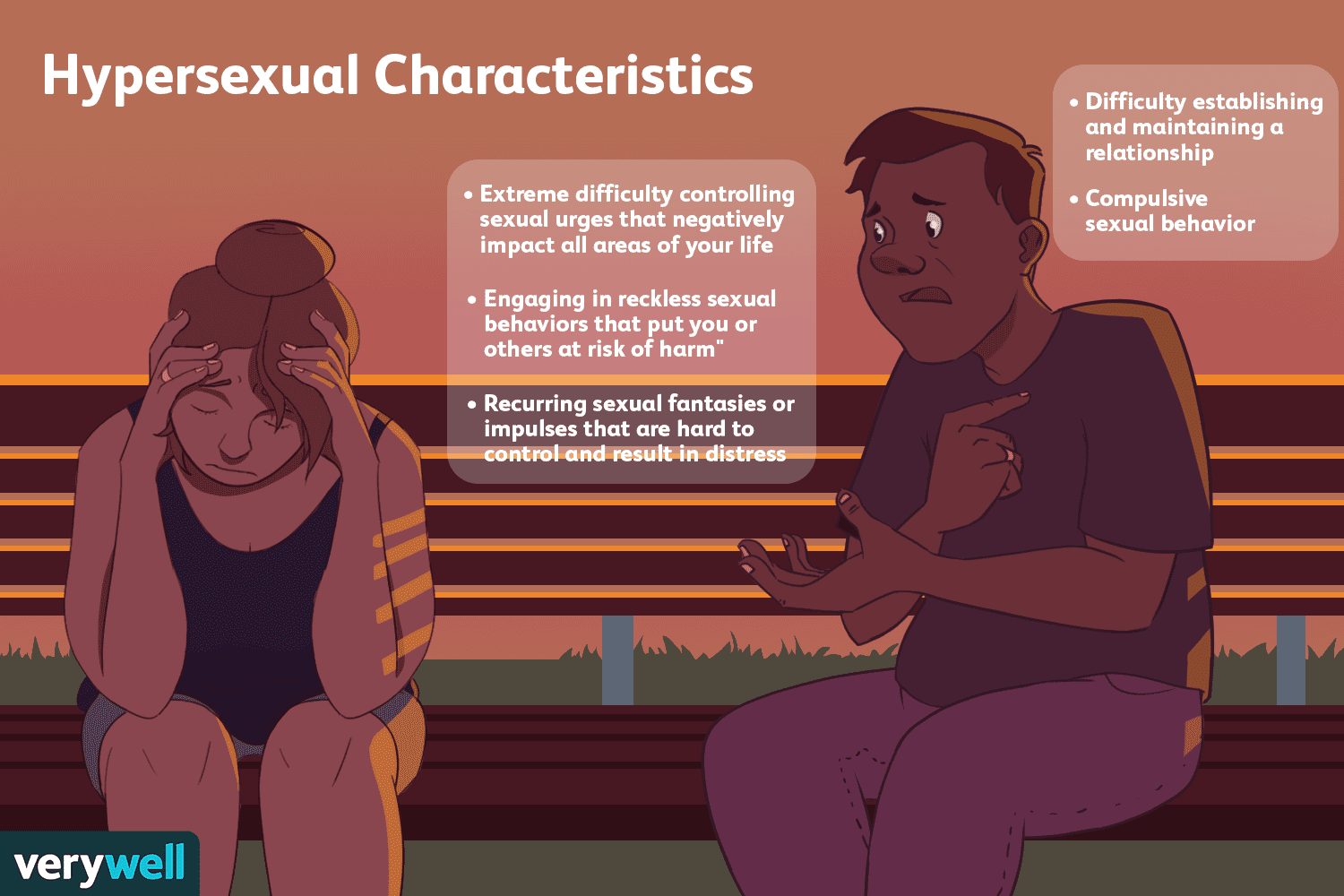Are you or someone close to you dealing with hypersexuality and ADHD? Do you feel overwhelmed by all the questions about how these two conditions interact?
Introduction: Is Hypersexuality a Symptom of ADHD?
Attention Deficit Hyperactivity Disorder (ADHD) is a well-known condition affecting both children and adults. It is characterized by difficulty with focusing, hyperactivity, and/or impulsivity. However, there is growing evidence to suggest that hypersexuality may also be a symptom of ADHD. While the connection between the two has yet to be conclusively proven, there is mounting evidence to suggest that the two could be linked. In this blog post, we will explore the possible link between ADHD and hypersexuality, as well as the prevalence, causes, and impacts of the symptom. We will also discuss treatment options for those suffering from both conditions.
What is Hypersexuality
Hypersexuality is a term used to describe a heightened libido or sexual desire. It is often associated with other conditions, such as bipolar disorder or ADHD, but can also exist independently of any other mental health issue. Hypersexuality can manifest itself in different ways, such as increased thoughts about sex, increased frequency of masturbation or sexual fantasies, or engaging in risky or compulsive sexual behavior. People with hypersexuality often find it difficult to control their sexual impulses and this can have a negative impact on their relationships, work and social life.
The Link Between Hypersexuality and ADHD
The link between Attention Deficit Hyperactivity Disorder (ADHD) and hypersexuality has been studied for some time, with research suggesting that the two can be associated. Studies have found that the symptoms of ADHD can play a role in the severity of hypersexuality in both men and women. Individuals with ADHD reported significantly more hypersexual behaviors than non-ADHD individuals, and it is thought that this could be due to the symptoms of ADHD, such as impulsivity and executive dysfunction, leading to an increase in risky or compulsive sexual behavior. Interestingly, research indicates that hypersexuality is more highly associated with ADHD than previously assumed, which suggests that it is a more common symptom than previously thought.

The Causes of Hypersexuality in People with ADHD
One of the most common causes of hypersexuality in people with ADHD is the heightened level of dopamine that can be caused by the disorder. Dopamine is a neurotransmitter that is responsible for controlling pleasure, motivation, and concentration. People with ADHD often have an imbalance in their dopamine levels, which can lead to an increased desire for sexual behavior. Additionally, ADHD can cause individuals to become easily bored and to seek out novel activities and experiences, which can include sexual activity. Furthermore, ADHD can cause people to be impulsive and to act without considering the consequences of their behavior, which can lead to engaging in risky or inappropriate sexual behavior. Finally, people with ADHD may feel socially isolated and use sex as a way to seek out connection and acceptance.
The Prevalence of the Symptom Among People with ADHD
Research suggests that hypersexuality is more likely to be seen in people with ADHD than those without. In a study conducted by the National Center for Biotechnology Information (NCBI), it was found that individuals with ADHD reported significantly more hypersexual behaviors than non-ADHD individuals, whereas no differences were found concerning risky sexual behaviors. Moreover, another study presented at the World Congress on ADHD in 2018 suggested that ADHD symptoms may lead to hypersexuality among people with ADHD. These findings indicate that hypersexuality is a common symptom among those with ADHD.

The Impact of Hypersexuality on Those With ADHD
Hypersexuality can be a difficult symptom to manage for people with ADHD. It can have a major impact on their lives, leading to problems such as relationship difficulties, guilt and shame, financial troubles, and even legal repercussions. It can also bring negative attention to those with ADHD, leading to social isolation and stigma.
People with ADHD and hypersexuality may find it difficult to control their actions and may feel overwhelmed by the urge to engage in sexual activities.
This could lead to further difficulties in managing their ADHD symptoms, such as difficulty paying attention or controlling impulsive behavior. It is important for those with ADHD and hypersexuality to seek help and access the necessary resources so that they can better manage the symptom and its associated issues.
How to Manage Hypersexuality in People With ADHD
When it comes to managing hypersexuality in people with ADHD, there are a few approaches that can be taken. One of the most important things to do is to address any underlying issues that are contributing to the hypersexuality. This could include getting help for any mental health issues or addressing any trauma or difficult life experiences that may be contributing to the behavior.
In addition, it is important to create a supportive environment for the individual and to provide them with resources and support. This could include talking to a therapist or counselor, joining a support group, or seeking out resources such as books and online materials to help them better understand and manage their behavior.
It is also essential to create healthy boundaries for the individual and to set limits around their behavior. This includes having clear expectations about their behavior and consequences for not following them. Additionally, it is important to ensure that they have access to healthy outlets for their needs, such as exercise and creative activities.
Finally, it is important to provide education on sexuality and healthy sexual relationships. This can help the individual understand their own sexuality and make informed decisions about their relationships and behavior.
Therapy Options for People With ADHD and Hypersexuality
Therapy can be a very effective tool in managing hypersexuality in people with ADHD. Cognitive Behavioral Therapy (CBT) helps individuals identify and modify maladaptive behaviors, such as compulsive sexual behavior. Dialectical Behavioral Therapy (DBT) can help a person learn to better regulate their emotions and behaviors, including those related to hypersexuality. Other therapies that may be beneficial include Acceptance and Commitment Therapy (ACT), which can help individuals accept their challenging thoughts and behaviors, and psychodynamic therapies, which can help individuals gain insight into their underlying motivations and impulses. Additionally, family therapy or couples therapy may be beneficial in helping to address the interpersonal issues that can arise from hypersexuality. It is important to note that therapy is not a one-size-fits-all solution, so it is important to find the right therapist for your needs. Ultimately, therapy can be an invaluable tool in managing hypersexuality in people with ADHD.
Medication For Treating Hypersexuality in Those With ADHD
When it comes to treating hypersexuality in those with ADHD, medications can be helpful in regulating dopamine and other hormones that are involved in sexual arousal. Stimulants such as methylphenidate, which is commonly prescribed for ADHD, are known to reduce hypersexual behaviors. Non-stimulant medications such as atomoxetine, bupropion, and guanfacine can also help control hypersexual urges. Some antidepressant medications may be useful for treating associated depression and anxiety. In some cases, mood stabilizers may also be needed to reduce manic symptoms, which can include an increase in sexual desire and activity. It is important to note that any psychotropic medication should be prescribed by a qualified psychiatrist or other specialist who is familiar with the complexities of ADHD and its associated symptoms.

